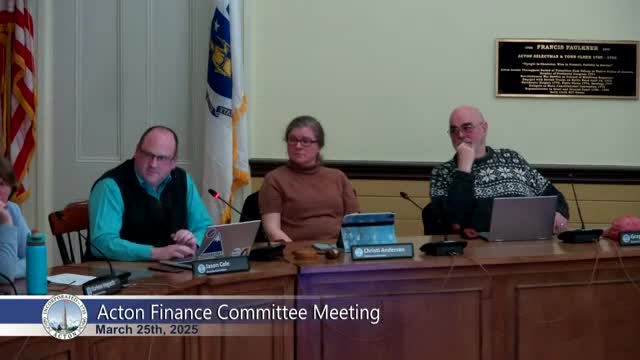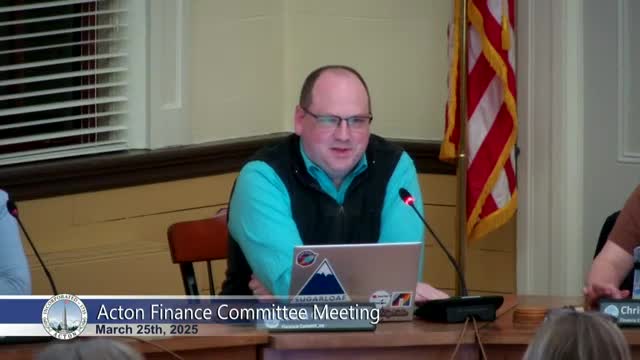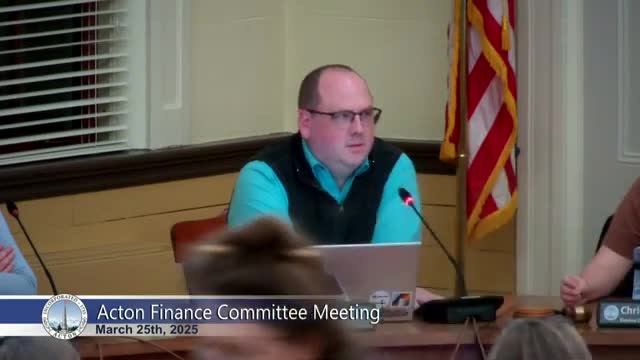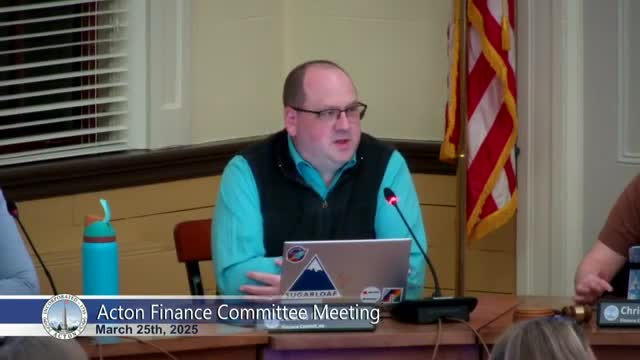Article not found
This article is no longer available. But don't worry—we've gathered other articles that discuss the same topic.

Acton Finance Committee issues recommendations on FY26 warrant; municipal budget recommended with dissent

Minuteman Regional presents FY26 budget; Acton assessment declines slightly

Water Resources Advisory Committee requests finance committee review of stormwater utility study

